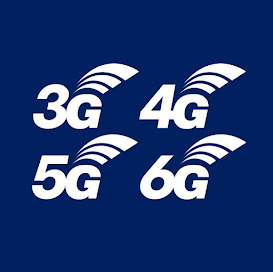 Its interesting that its not only Google that experimenting with Voice Recognition and Voice search but a whole lot of other players. Earlier I blogged about Real time Speech Translation and another one was the Voicemail search. Google's search App also allows to search using voice rather than by entering text.
Its interesting that its not only Google that experimenting with Voice Recognition and Voice search but a whole lot of other players. Earlier I blogged about Real time Speech Translation and another one was the Voicemail search. Google's search App also allows to search using voice rather than by entering text. Produced by the publishers of the industry’s best-read magazine, Speech Technology, SpeechTEK Europe is the sister of the highly successful New York annual event series and aims to capitalise on the wealth of speech innovators based here in Europe.
The conference has been developed by a Steering Committee which comprises some of the industry’s most respected thought leaders. Here they share their insights into the future for speech technologies, how they are developing, and where they will be used.
Loquendo’s Vice President of International Sales, Rosanna Duce, predicts that voice control will be a major growth area in the next five years:
“One important emerging speech technology is undoubtedly the voice control of all kinds of devices, for example, PDAs, mobile phones, DVD players.” She comments, “These technologies are currently being expanded and upgraded to allow all functions to be accessed using voice, thus eliminating the need to use a keyboard. Consumer demand seems to suggest that the option to dictate text messages will be a major source of growth in this area, as will be the reading of incoming messages by a TTS application bundled with the phone/PDA.”
Nava Shaked, CEO of Business Technologies, agrees,
“The combination of voice search engines, internet and mobile is a real opportunity for speech technology growth and influence. This includes the introduction of previously unseen applications for voice user interface and transcription. The combination of voice and video is also promising and will be inevitable in our interaction with multimedia.”
James Larson, the Conference Chair, supports these views,
“Multimodal applications on mobile devices will enable customers to not only speak and listen, but to also read and type and use additional modes in interaction. These apps will be easy to learn, easy to use, and much more natural than current voice-only apps or GUI-only apps. They will always be available, and customers can use them wherever they are, not just at their desktop or in their car.” He concludes, “Multimodal applications on mobile devices will dramatically change how we interact with appliances - TV, radio, environmental control - with the internet, and with other people.”
The SpeechTEK Europe conference programme explores these trends and the implications for the industry as a whole. Real world applications and case studies are a particular feature of the event, so delegates can see for themselves how speech is working in a variety of different environments, how to select and implement the technology, and how to evaluate its performance.
The full SpeechTEK Europe programme is available at: www.speechtek.com/europe2010 along with registration information, details of registration savings, and free entry exhibition tickets.

















 One can argue that the world of Apps have already been revolutionised by the iPhone, which is true but what lacks with the iPhone is the freedom to compete with Apple itself. The following is from
One can argue that the world of Apps have already been revolutionised by the iPhone, which is true but what lacks with the iPhone is the freedom to compete with Apple itself. The following is from 




